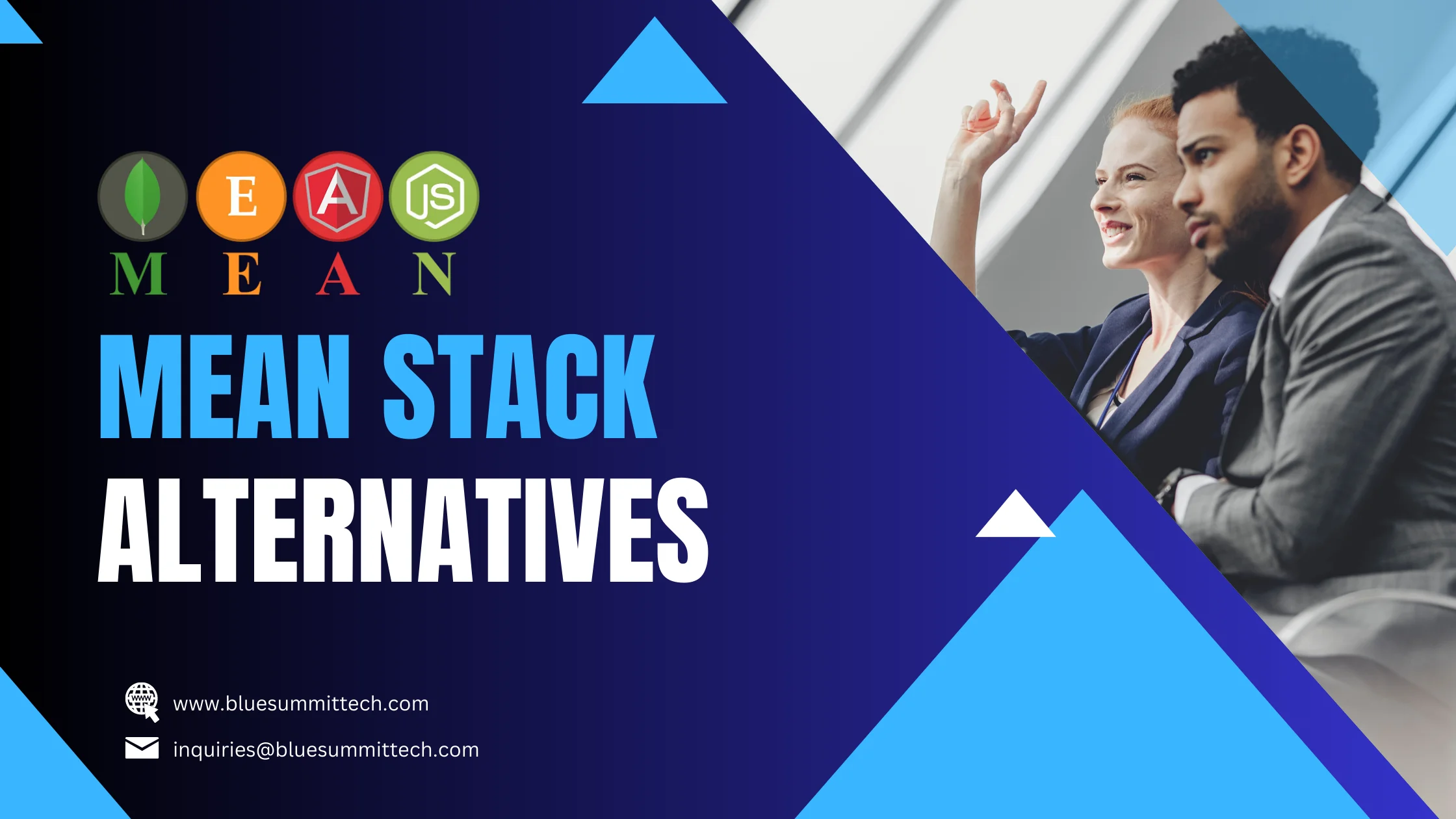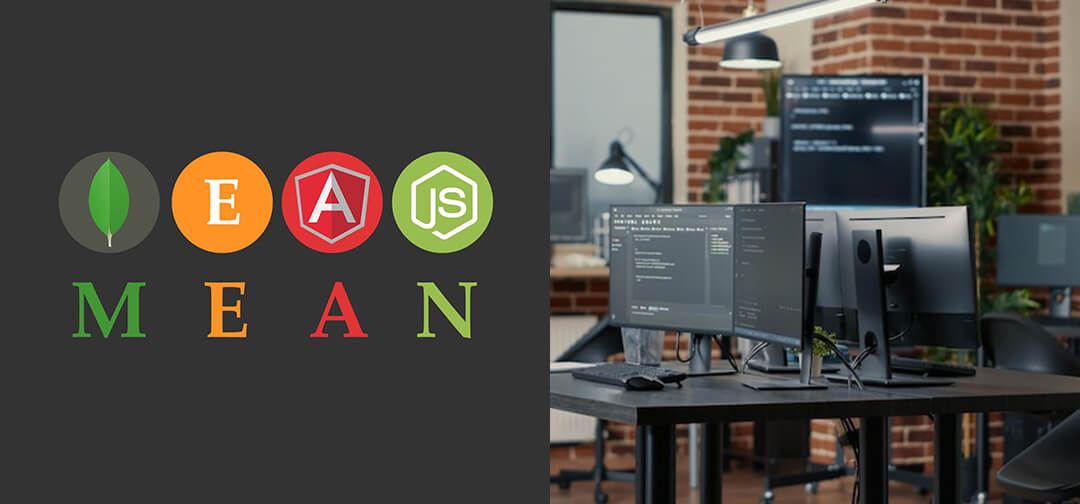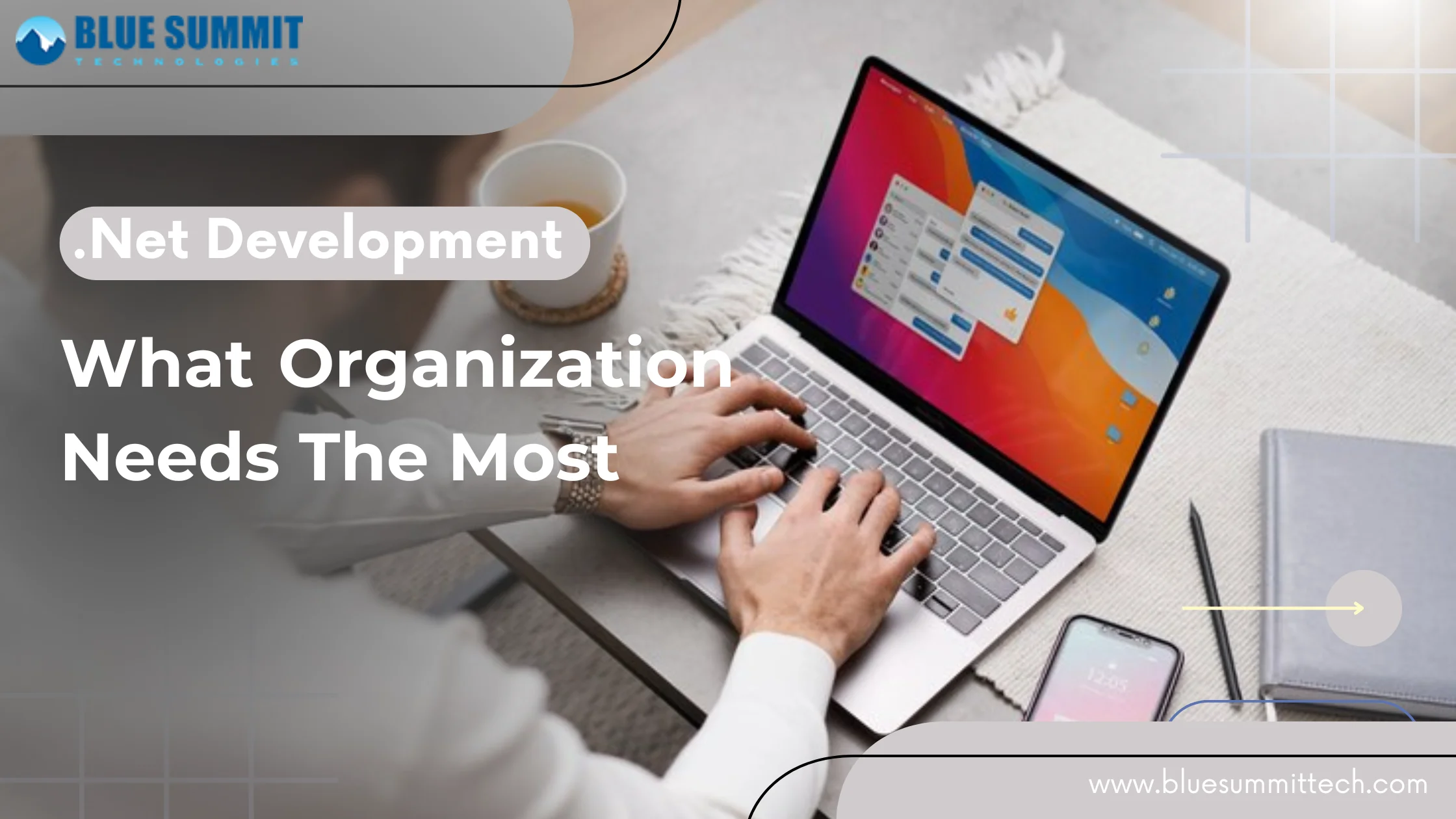
Posted on Thursday, Aug 17th, 2023
MEAN and Beyond: A Journey through the Landscape of Alternatives
In the realm of full stack web development, the MEAN stack has long reigned as a popular choice. Comprising MongoDB, Express.js, Angular, and Node.js, MEAN has powered countless applications. However, the tech world is ever-evolving, and alternatives have emerged that offer fresh perspectives and capabilities. In this blog, we embark on a journey through the landscape of MEAN Stack alternatives, exploring the diverse options available to developers seeking new horizons.
The Evolution of Stacks
Before diving into MEAN Stack alternatives, let's briefly revisit it's components and its significance in the development ecosystem. The MEAN stack's synergy between client-side and server-side technologies has been pivotal in crafting dynamic web applications.Exploring MEAN Stack Alternatives
1. MERN: MongoDB, Express.js, React, Node.js: The MERN stack replaces Angular with React—a JavaScript library known for building interactive user interfaces. MERN's component-based architecture and virtual DOM offer distinct advantages in UI development.2. MEVN: MongoDB, Express.js, Vue.js, Node.js: MEVN, much like MERN, swaps Angular for Vue.js. Vue's simplicity and reactivity make it an appealing choice for developers aiming for rapid application development.
3.LAMP: Linux, Apache, MySQL, PHP/Perl/Python: A veteran in the field, LAMP deploys Linux as the operating system, Apache as the web server, MySQL as the database, and either PHP, Perl, or Python for server-side scripting. LAMP's long-standing presence and extensive community support make it an enduring alternative.
4. PERN: PostgreSQL, Express.js, React, Node.js: PERN is a cousin of MERN, but with PostgreSQL as the database system. PostgreSQL's advanced features and reputation for data integrity offer robust data management capabilities.
Advantages of Exploring Alternatives
1. Specialized Strengths: Each alternative stack brings a unique set of strengths to the table. Developers can choose stacks that align with their project requirements and personal preferences.2. Learning Opportunities: Dabbling in different stacks broadens developers' skill sets, allowing them to become well-rounded professionals with a diverse range of experiences.
3. Keeping Up with Trends: Embracing alternative stacks enables developers to stay updated with the latest trends and technologies, fostering a dynamic skill development journey.
Factors to Consider When Choosing
1. Project Scope and Requirements: Evaluate the project's needs—does it require extensive real-time interaction, rapid UI development, or complex data management?2. Team Skill Set: Assess the expertise of your development team. Familiarity with certain technologies can influence the stack that suits your project best.
3. Scalability and Performance: Consider the scalability and performance demands of your application. Some stacks might be better suited for high-performance applications.
MEAN Stack vs MERN Stack
The primary difference between MEAN and MERN lies in the choice of front-end framework: Angular in MEAN and React in MERN. Angular offers a comprehensive framework with features like two-way data binding and dependency injection, which can simplify complex application development. React, on the other hand, excels in providing a lightweight and flexible approach to building UI components, making it a preferred choice for SPAs and applications that prioritize a seamless user experience.MEAN vs MEVN Stack
The decision between MEAN and MEVN boils down to the project's specific requirements and your team's expertise. MEAN is a strong fit for applications with complex UI structures and real-time interactions. MEVN, with Vue.js's reactive nature, is well-suited for projects that prioritize rapid UI development, simplicity, and a smooth user experience. Consider your project's complexity, desired user interface, and your team's familiarity with either Angular or Vue.js when making your choice.The MEVN stack is known for its simplicity and reactivity, making it an attractive option for projects that prioritize rapid application development and seamless user experiences.
MEAN vs LAMP Stack
The MEAN (MongoDB, Express.js, Angular, Node.js) and LAMP (Linux, Apache, MySQL, PHP/Perl/Python) stacks are prominent in web development, each catering to specific needs. MEAN excels in real-time apps with MongoDB's flexible data handling, Angular's dynamic UI, and Node.js's asynchronous power. LAMP, a traditional choice, suits content-centric sites with Linux, Apache's stability, MySQL's structured data management, and PHP/Perl/Python scripting. MEAN's all-JavaScript environment benefits familiarity, while LAMP's long-standing components offer stability.MEAN's strength lies in real-time interactions, while LAMP excels in content-centric websites. MEAN leverages Node.js for concurrency, suited for apps with high user loads, whereas LAMP components are optimized over time for fine-tuned performance.
MEAN vs PERN
The key difference between MEAN and PERN lies in the choice of database: MongoDB in MEAN and PostgreSQL in PERN. MongoDB is a NoSQL database known for its flexibility, making it suitable for applications with evolving data structures. On the other hand, PostgreSQL is a powerful relational database management system, ideal for applications that require structured data and transactions.MEAN is particularly well-suited for real-time applications and dynamic single-page applications (SPAs), thanks to its event-driven architecture and Angular's robust front-end capabilities. PERN offers a powerful toolkit for building high-performance applications that require structured data management.
Conclusion
The web development landscape is brimming with opportunities beyond MEAN. As we've explored, the MERN, MEVN, LAMP, and PERN stacks provide developers with tailored solutions to various challenges. By embracing these alternatives, developers can tap into diverse technologies, broaden their expertise, and craft applications that truly stand out.At Blue Summit, we possess robust proficiency in both Full-stack development, and our core specialty lies in the MEAN stack. Our adept team of developers excels at fulfilling all your conventional and specialized project requirements for web application development seamlessly. To delve deeper into our array of services, get in touch with us today.
Blue Summit has collaborated with OdiTek Solutions, a frontline custom software development company. It is trusted for its high service quality and delivery consistency. Visit our partner's page today and get your business streamlined.
REFER TO OTHER RELEVANT CONTENTS

MEAN Stack Development
It's crucial to have a standardized, consistent software stack when creating a new application. Utilizing a collection of solutions that are made to function together will simplify resources and cut down on development time for your back-end. The stack field is becoming congested, though. There...
read more







